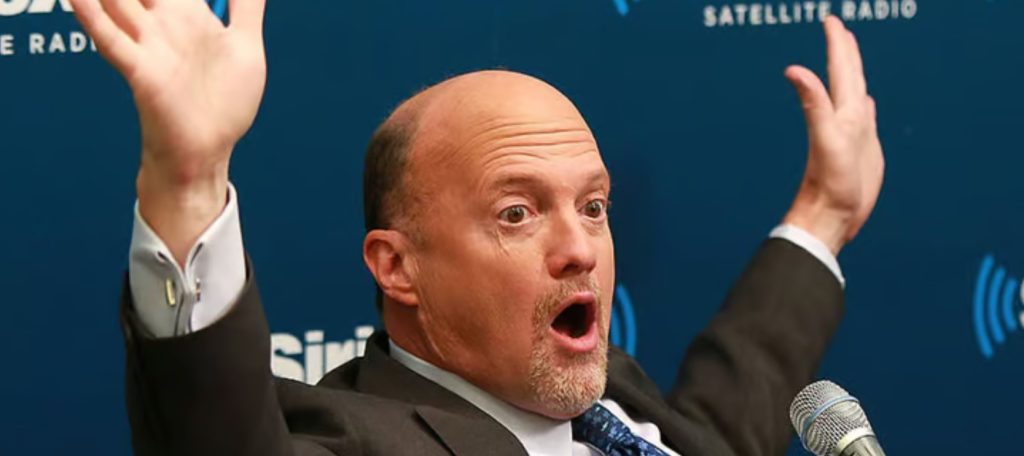
The S&P 500 experienced a 25% surge in 2023, an impressive feat for a benchmark index. Despite this overall growth, not every constituent company mirrored such high returns.
Torsten Slok, chief economist at Apollo Global Management, highlighted a striking contrast within the index. As reported by MarketWatch, Slok noted that 72% of the S&P 500 components underperformed the index in 2023.
That proportion of underperforming companies within the benchmark index is record-setting, he said.
So which companies propelled the S&P 500’s upward trajectory?
The answer lies with a group of mega-cap tech behemoths, whose exceptional performance has earned them the nickname “the Magnificent Seven.” This elite group comprises Apple (AAPL), Amazon (AMZN), Alphabet (GOOGL), Meta Platforms (META), Microsoft (MSFT), Nivida (NVDA) and Tesla (TSLA).
CNBC’s Jim Cramer recently praised these companies emphatically.
“The Magnificent Seven have the most optionality of any publicly traded companies in modern history,” he remarked during a Mad Money segment.
“To sell any of them is to forget that they have this kind of incredible power.”
However, even among the Magnificent Seven, performance varied. Here’s a look at the top three performers of this group in 2023 — each achieving triple-digit percentage gains.
Nvidia
Artificial intelligence has emerged as a leading trend in the tech sector, and Nivida (NVDA) is reaping significant rewards from investors’ insatiable appetite for AI.
Shares of the chip-making giant skyrocketed by more than 240% in 2023, making it the No.1 performer among the Magnificent Seven.
The company’s financial growth has been exceptional. In the fiscal quarter ended Oct. 29, 2023, revenue surged 206% year over year to $18.12 billion. Adjusted earnings came in at $4.02 per share, up a staggering 593% from a year ago.
Nvidia founder and CEO Jensen Huang highlighted AI as a catalyst for the business.
“Our strong growth reflects the broad industry platform transition from general-purpose to accelerated computing and generative AI,” he said in the earnings press release. “Large language model startups, consumer internet companies and global cloud service providers were the first movers, and the next waves are starting to build.”
The remarkable rally in Nvidia shares also propelled the company’s market capitalization beyond the $1 trillion mark.
Meta Platforms
While Mark Zuckerberg’s venture into the metaverse might not have yielded the most desired outcomes, Meta (META) remains a behemoth in the social media industry.
The broad reach of Meta’s family of services — including Facebook, Instagram, Messenger and WhatsApp, among others — amassed a whopping 3.96 billion monthly active users as of the end of Q3, marking 7% growth year over year. This figure represents roughly half of the global population.
Cramer highlighted Meta as an example of how mega cap companies “always have some business that people don’t like,” referencing the company’s investments in the metaverse.
Yet this situation could also serve as a springboard for the stock.
“If Mark Zuckerberg, for example, came out today and said he was closing his metaverse division, I can’t even imagine how high Meta stock would go,” Cramer suggested.
Meta shares are already flying high — they shot up about 185% in 2023.
Tesla
As the third-best performer of the Magnificent Seven, Tesla (TSLA) saw its shares soar by 130% in 2023.
The electric vehicle maker continues to expand its presence in the automotive industry.
In Q3, Tesla produced 430,488 vehicles, marking an 18% increase year over year. Deliveries totaled 435,059 vehicles for the quarter, up 27% from a year ago.
However, the path forward is not without uncertainties. According to CEO Elon Musk, there’s one major hurdle facing the industry: interest rates.
“I’m worried about the high-interest-rate environment that we’re in,” Musk said during the latest earnings conference call. “I just can’t emphasize this enough that the vast majority of people buying a car is about the monthly payment. … If interest rates remain high or if they go even higher, it’s that much harder for people to buy the car, they simply cannot afford it.”
The Federal Reserve could soon offer some solace to Musk, as Federal Open Market Committee members’ projections indicated three-quarter-point rate cuts in 2024.
























